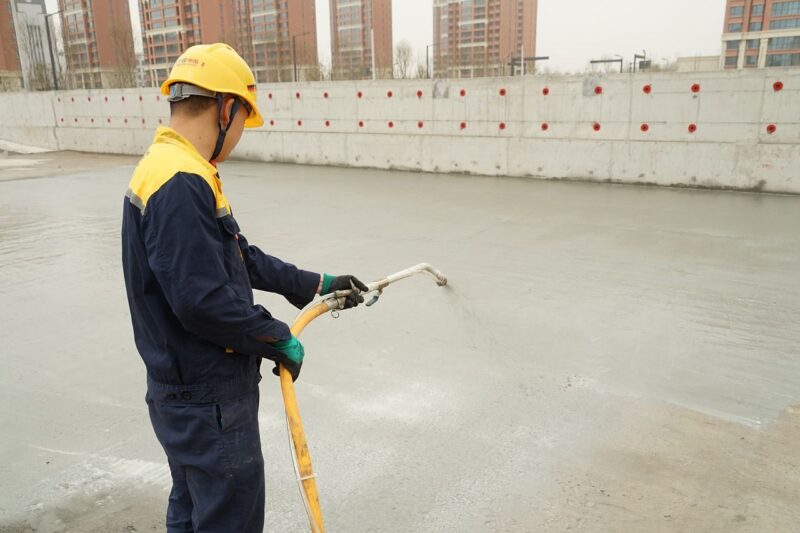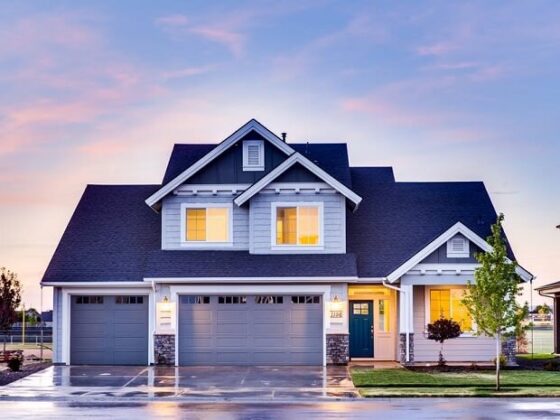The structural integrity and longevity of a building depends on various factors. One of the most critical of which is effective waterproofing.
Whether you’re constructing a new home or dealing with renovations, proper waterproofing measures help protect the structure from moisture damage. Over time, water can creep into cracks, crevices, and porous materials, leading to long-term deterioration. From roofs to basements, waterproofing safeguards your property against moisture infiltration, extending the life of your building.
Read on to understand the importance of waterproofing for building longevity and how this crucial step can protect your property and avoid costly repairs in the future.
Preventing Structural Damage
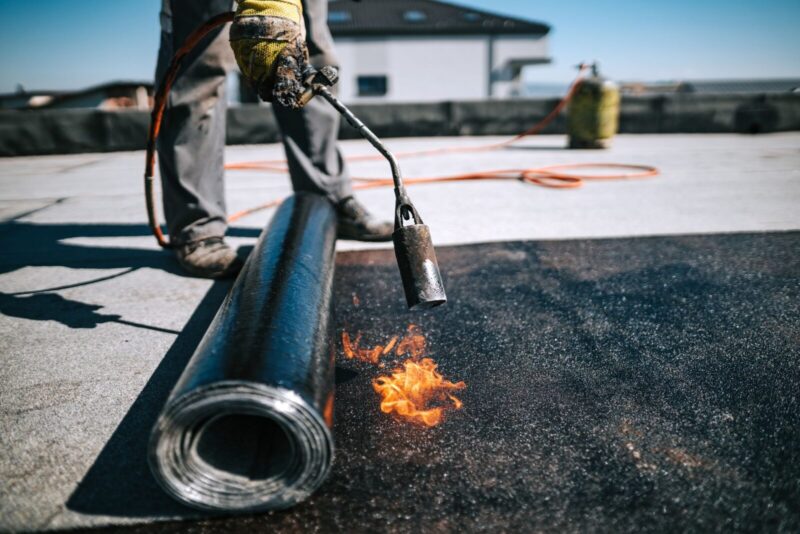
Waterproofing is vital for preventing structural damage, which can significantly weaken a building over time. Without proper waterproofing, water can seep into the foundation, walls, or roof, leading to cracks and erosion. This is especially true for areas prone to heavy rainfall or water exposure.
For instance, roofs are particularly vulnerable to moisture damage. If a roof is not adequately waterproofed, water can penetrate the surface, leading to rot, mold, and even collapse in extreme cases.
Regular maintenance, like a slate roof replacement, combined with effective waterproofing, can help extend the lifespan of your roof by preventing water from entering critical areas.
Protecting Against Mold and Mildew Growth
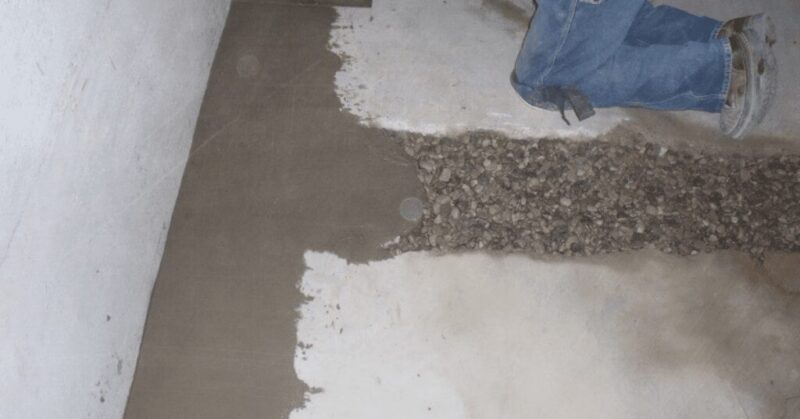
One of the most common issues resulting from poor waterproofing is the growth of mold and mildew. These fungi thrive in moist environments and can quickly spread throughout a building. Besides causing unpleasant odors, mold and mildew can also pose significant health risks to occupants, including respiratory issues and allergies.
Waterproofing vulnerable areas, such as bathrooms, basements, and kitchens, can prevent moisture buildup and inhibit the growth of these harmful fungi. This ensures a healthier living environment and preserves the building’s aesthetic and structural quality.
Improving Energy Efficiency
Another often overlooked benefit of waterproofing is its impact on energy efficiency. When water infiltrates a building, it can cause materials to swell, warp, or degrade, leading to gaps and cracks in the structure. These openings allow heat to escape during the winter and cool air to leak during the summer, forcing your HVAC system to work harder to maintain a comfortable indoor temperature.
Proper waterproofing can help seal these gaps and keep your building well-insulated, reducing energy consumption and lowering utility bills. Over time, this saves money and contributes to a more sustainable and eco-friendly property.
Preserving Property Value
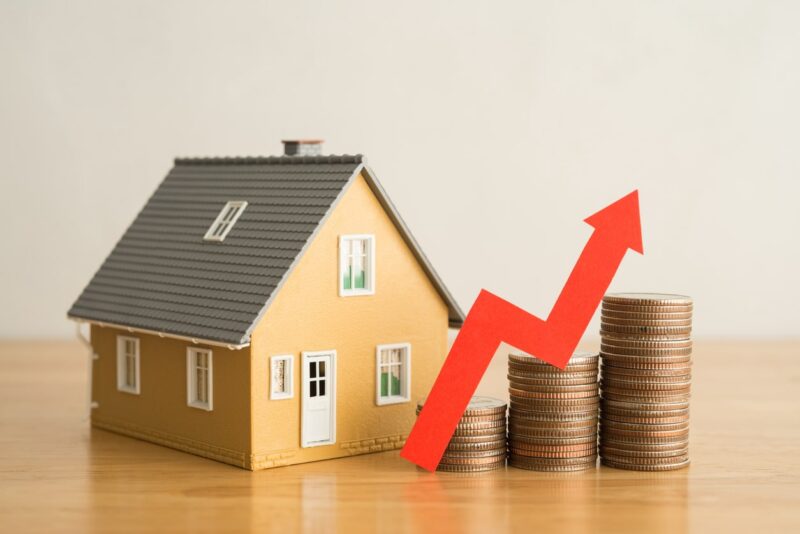
Water damage can drastically reduce the value of a property. Homes or buildings that suffer from frequent leaks, mold issues, or foundation cracks are likely to lose their market appeal. On the other hand, a well-maintained and properly waterproofed structure retains its value and attractiveness to potential buyers or tenants.
Investing in waterproofing measures, such as roofing repairs or foundation sealing, demonstrates that the property has been cared for and protected from common moisture-related issues. This helps maintain or even increase the property’s resale value over time.
Avoiding Costly Repairs
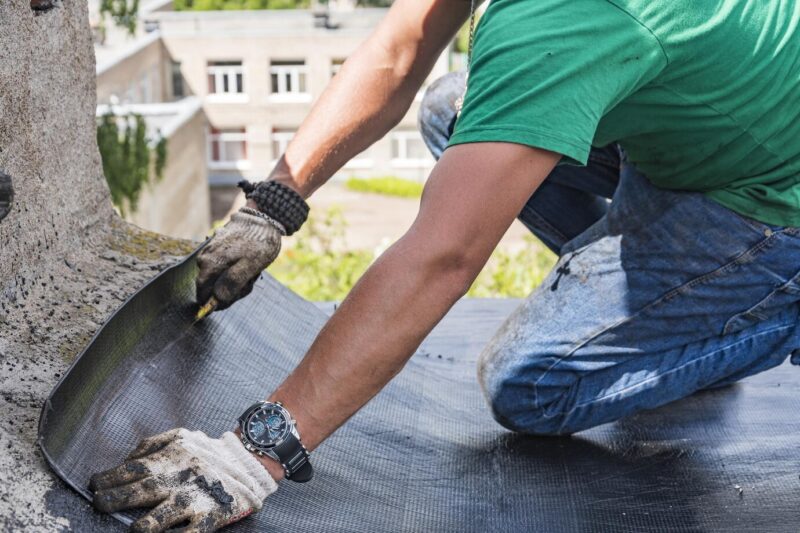
Addressing water damage can be a costly endeavor, especially when it goes unnoticed for an extended period. Fixing cracks in the foundation, replacing damaged insulation, or repairing a leaky roof can lead to expensive repairs that could have been avoided with proper waterproofing.
By taking preventive measures early on, you can save yourself from the headache and expense of future repairs. Regularly checking areas prone to water exposure and ensuring they are adequately sealed is a small investment compared to the potential costs of repairing extensive water damage.
Safeguarding Against Natural Disasters
In areas prone to natural disasters, such as heavy rain, floods, or hurricanes, waterproofing provides an extra layer of protection. Buildings that are properly waterproofed are better equipped to withstand these events, reducing the risk of severe water damage. Such a proactive measure can make a significant difference in the aftermath of a disaster, minimizing recovery costs and ensuring quicker restoration.
Conclusion
Waterproofing is an essential aspect of building maintenance that should never be overlooked. By preventing moisture from seeping into your structure, you can avoid significant damage, improve energy efficiency, and protect the value of your property. Whether it’s through slate roof replacement, foundation sealing, or bathroom waterproofing, taking these measures will ensure your building remains in excellent condition for years to come.
